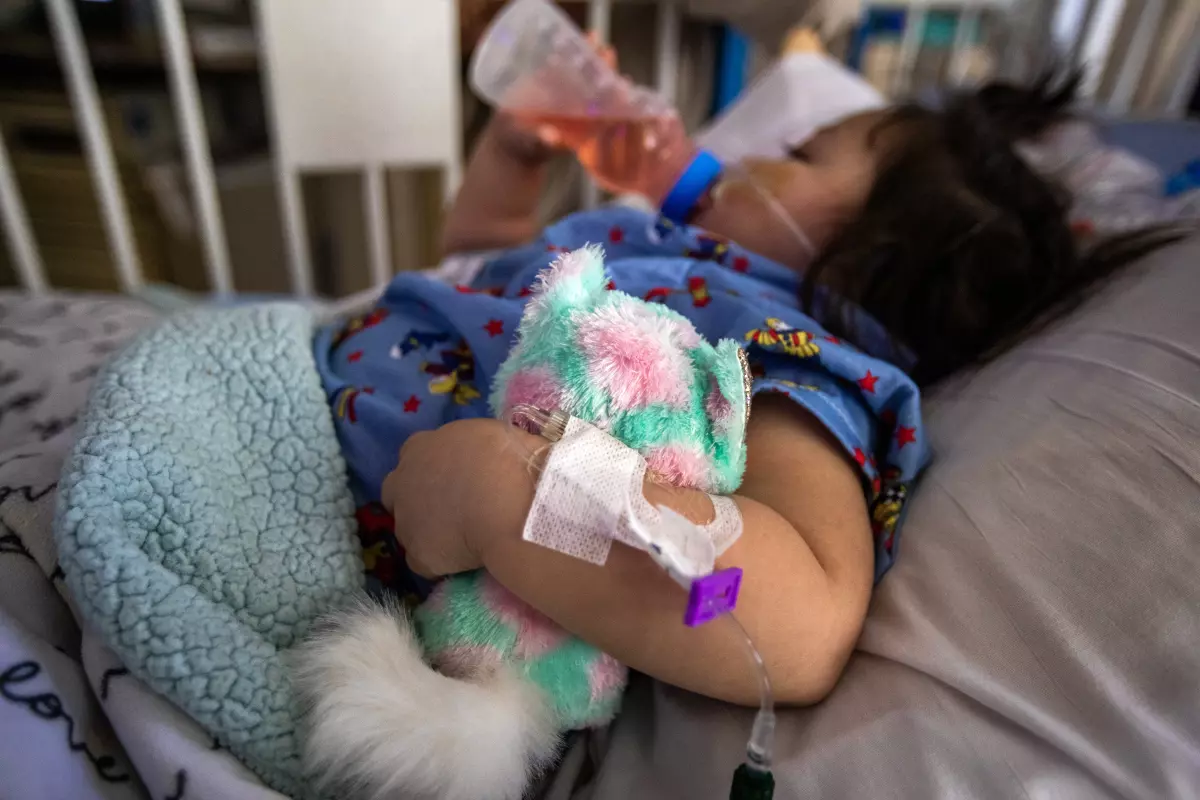A highly contagious wave of respiratory syncytial virus is spreading across the United States, and the latest data suggests that more infants and young children are being hospitalized.
RSV is emerging in the country during the fall and winter respiratory virus season, a time when infections of illnesses like COVID-19 and influenza increase. However, RSV, the leading cause of hospitalizations in children nationwide, poses a particular risk to young children, and health experts recommend that pregnant women get vaccinated close to their due dates or have their newborns vaccinated.
“If you haven’t gotten the RSV vaccine before, now is a good time to get it,” the Los Angeles County Department of Public Health told The Times.
Health officials have warned that RSV can be spread through coughing or sneezing, as well as by touching contaminated surfaces like doorknobs and then touching your face before washing your hands.
According to data released by PopHive, a project led by the Yale School of Public Health, RSV accounted for about 1.2% of emergency room visits among children under 1 year old in the week ending Oct. 11. The rate was 0.4% the previous month.
“An RSV wave is starting to spread,” epidemiologists Caitlin Zettelina and Hannah Tott write on the blog “Your Local Epidemiologist.”
According to the U.S. Centers for Disease Control and Prevention, RSV can be dangerous for children, the elderly, and people with certain medical conditions. In addition to pneumonia, RSV can also cause acute inflammation of the small airways in the lungs (bronchiolitis), according to the California Department of Public Health.
According to the CDC, about 2% to 3% of young children are hospitalized each year for RSV, typically. A study published in the journal Pediatrics found that most children hospitalized with acute respiratory illness due to RSV were previously healthy.
They may need oxygen or intravenous fluids to breathe, and may even be put on a ventilator, according to the CDC.
Unlike the flu and COVID-19, there are no antiviral medications to treat RSV once the infection has begun.
Currently, the combined activity of respiratory illness from RSV, influenza, and COVID-19 in California is considered “very low.”
However, the Los Angeles County Department of Public Health said that “we are starting to see the beginning of the respiratory virus season.”
Health officials in Santa Clara County, the most populous county in Northern California, are reporting “moderate” levels of RSV in wastewater from San Jose, Palo Alto, and Sunnyvale.
Orange County Health Officer Dr. Regina Chinseo-Kwang recommends that if you haven’t been vaccinated, get vaccinated now, “especially before respiratory virus activity increases later.”
RSV vaccination is recommended about one to two months before your estimated due date for women 32 to 36 weeks pregnant, anyone 75 years of age or older, and people 50 to 74 years of age with underlying medical conditions such as diabetes, cancer, kidney disease, weakened immune systems, asthma, or heart disease. Vaccination is also recommended for people living in nursing homes or long-term care facilities.


Leave a Reply